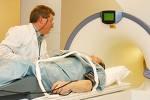
February 26, 2010 - Beginning in 2012, the Medicare Improvements for Patients and Providers Act (MIPPA) will require accreditation of ambulatory care facilities that bill Medicare for advanced imaging exams (MR, CT, PET and nuclear medicine exams). However, MIPPA does not apply to hospital providers of these services and does not include radiation therapy.
Several experts who testified during a Feb. 26 Congressional hearing said the passage of the CARE bill, which stands for Consistency, Accuracy, Responsibility and Excellence in Medical Imaging and Radiation Therapy, will help ensure the quality, safety and accuracy of medical radiation procedures.
Titled "Medical Radiation: An Overview of the Issues," the hearing was called by the House Energy and Commerce Committee's Subcommittee on Health to examine recent incidents where excessive radiation doses were delivered during CT examinations and radiation therapy treatments.
Radiologists and medical physicists who spoke at the hearing joined the American Society of Radiologic Technologists in supporting the CARE bill as a method to improve patient safety. The CARE bill would establish minimum, national educational and certification standards for technical personnel who perform medical radiation procedures.
The ASRT was represented at the hearing by Sandra Hayden, B.S., R.T.(T), vice speaker of the ASRT House of Delegates and a member of the ASRT Board of Directors. "Unqualified personnel are a danger to patients," Ms. Hayden told the lawmakers. "An underexposed x-ray can't reveal a malignant tumor, and an inaccurate radiation therapy treatment can't stop its spread. Even worse, when medical radiation is used improperly it can harm the very patients it was meant to help." Ms. Hayden is the administrative director of radiation therapy services at MD Anderson Cancer Center in Houston.
Tim R. Williams, M.D., chairman of the American Society for Radiation Oncology, called for passage of the CARE bill during his remarks before the subcommittee, and Michael Herman, Ph.D., president of the American Association of Physicists in Medicine, urged the bill's consistent implementation nationally. The CARE bill includes standards for medical physicists and medical dosimetrists as well as for medical imaging technologists and radiation therapists.
David Fisher, managing director of the Medical Imaging & Technology Alliance, also voiced support for the CARE bill during his testimony at the hearing. Each speaker's remarks were limited to five minutes. Read a transcript of Ms. Hayden's testimony or watch a recording of the hearing at the Energy and Commerce Committee's Web site.
The CARE bill was introduced most recently in the House of Representatives by Rep. John Barrow, D-Ga., in September 2009. The bill has been introduced in previous sessions of Congress and was unanimously passed by the Senate in 2006, but died when the House did not take action on the bill before the session ended.
The Feb. 26 House subcommittee hearing was called in response to recent news reports about errors in the delivery of medical radiation, most notably a series of articles about radiation therapy in the New York Times. In a letter to the Times that was published Jan. 31, ASRT President Diane Mayo, R.T.(R)(CT), noted that radiation errors, although tragic, are rare. "Patients should not refuse radiation therapy out of safety concerns," she wrote.
In addition to the establishment of personnel standards under the CARE bill, Ms. Hayden also recommended development of a mandatory method of reporting, investigating and tracking medical radiation errors. "Mistakes must be reported and investigated so others may learn from them," she told the House subcommittee. "By learning how errors occur, we can implement safeguards to prevent them."
Other professional associations in attendance at the hearing also supported a better system of reporting errors, with ASTRO calling for a national database to report linear accelerator errors.
In addition, Steven Amis Jr., M.D., speaking on behalf of the American College of Radiology, emphasized facility accreditation as a means to improve the quality and safety of radiology procedures. Dr. Amis called for mandatory accreditation of all facilities that provide advanced medical imaging and radiation therapy.
The ASRT supports facility accreditation programs that include educational and certification requirements for the technical personnel who perform medical imaging or plan and deliver radiation therapy.
For more information: www.asrt.org


 February 16, 2026
February 16, 2026 









